Product Marketing Consultant
Unleash your Business Growth Potential
With our proven Digital Ecosystem. Get Ready for 10X
» 360° Full Stack Digital Growth Marketing Services
» Business & Marketing Consultation / Mentorship
» Equity/Debt Funding & Business Loan Help
Trusted By 120+ Brands.
































3
STEP GROWTH PLAN

5.7x
GROWTH IN SALES

60
MINUTE STRATEGY CALL

100%
WORK TRANSPARENCY
Business Growth Solutions
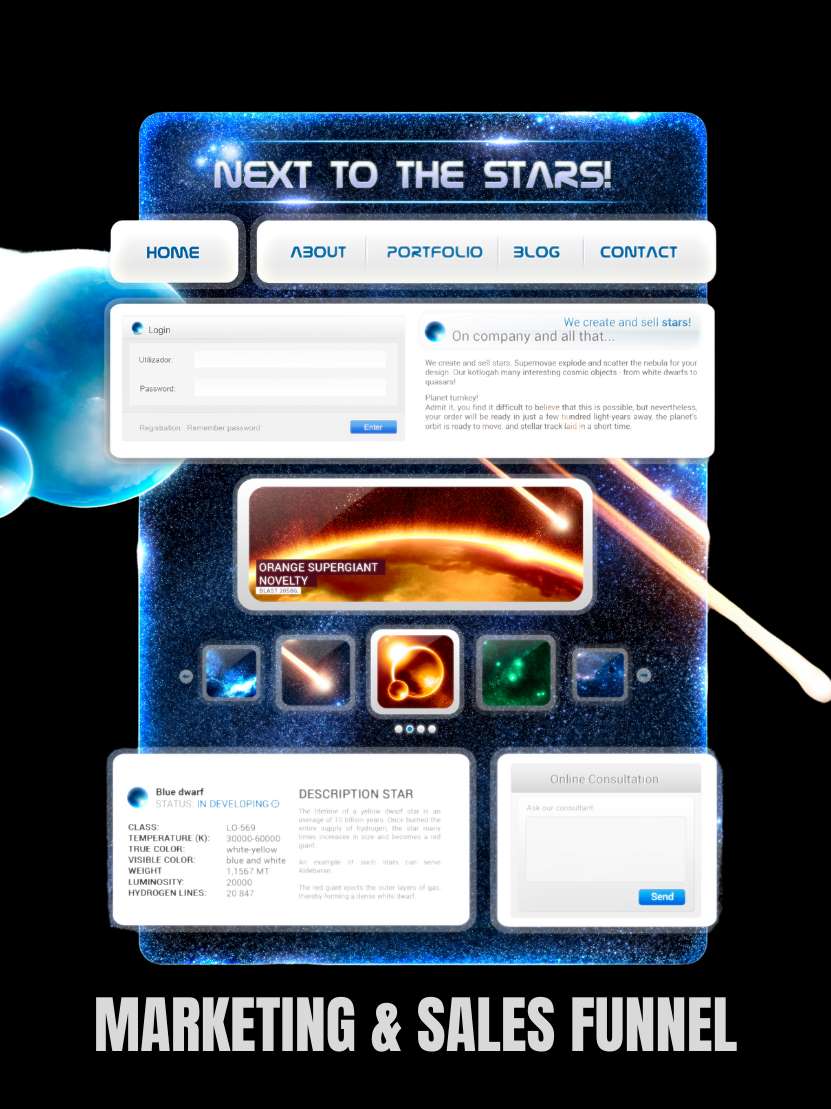
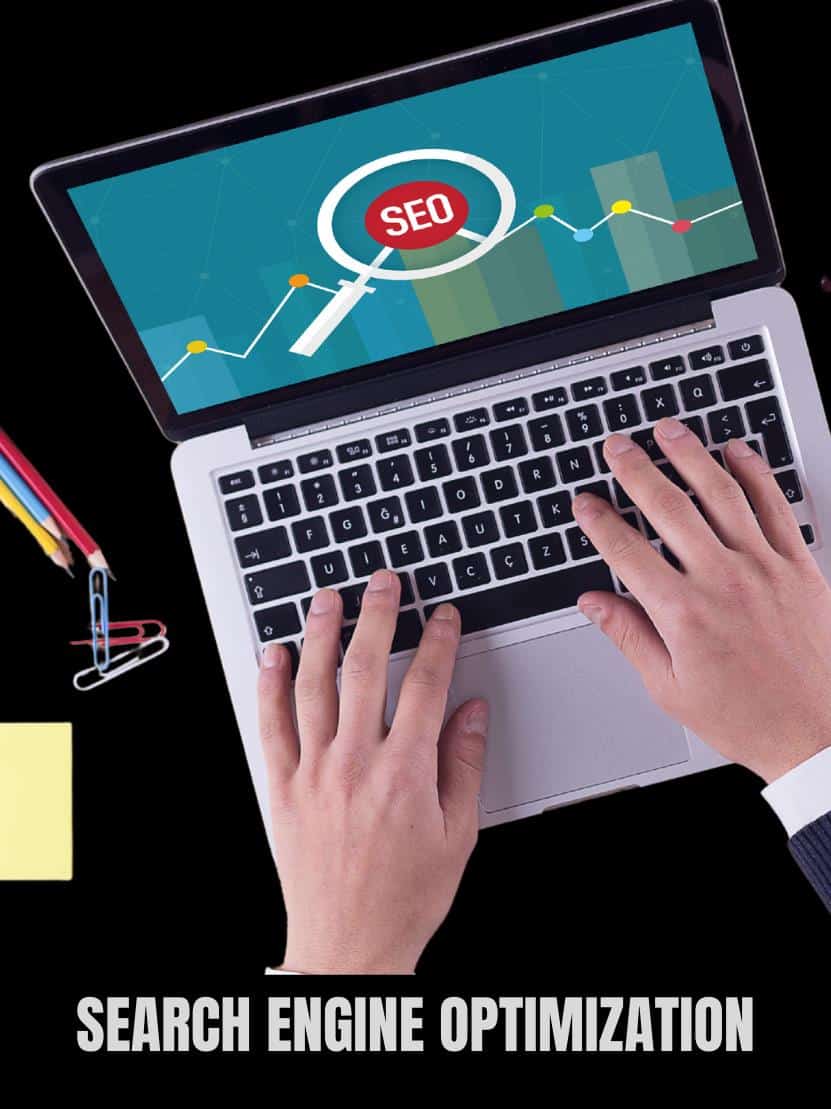

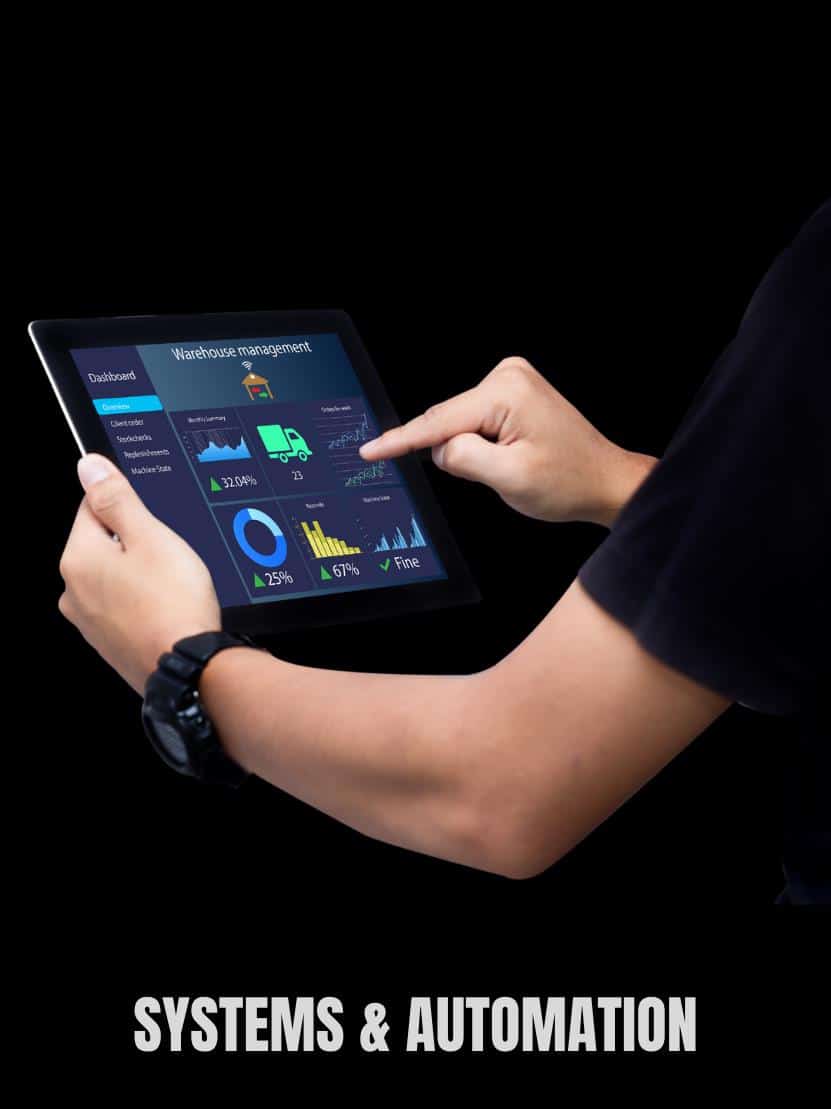

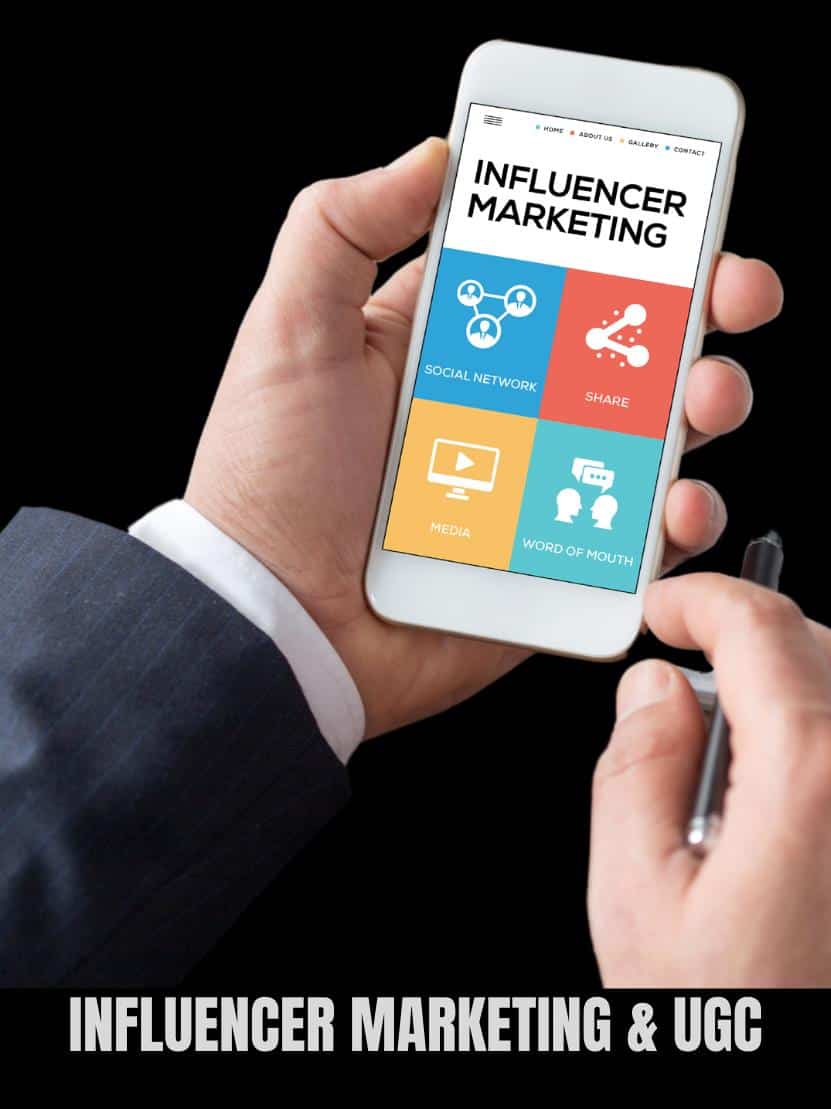
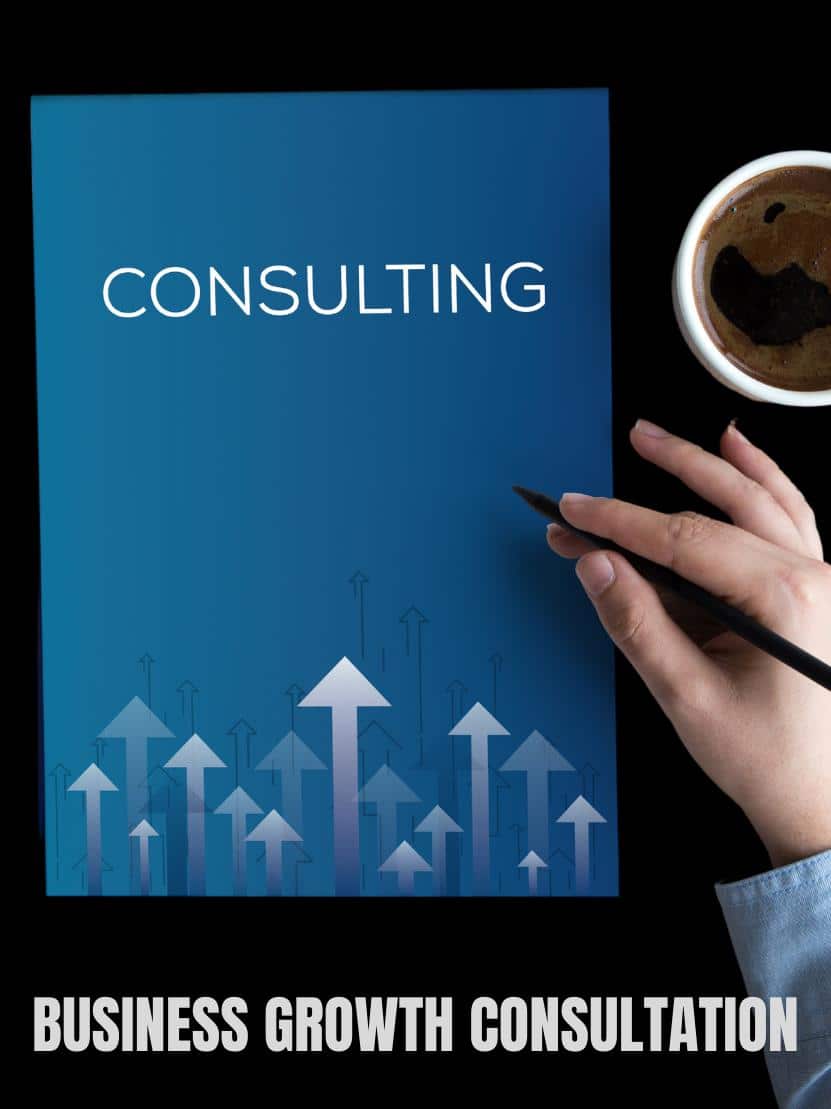

Our clients love us
See what real Business Owners & Entrepreneurs are
saying about Invincible Lion Team

Ajay helped us shape the go-to-market strategy and the “Digital Ecosystem” helped us get consistent leads and high-paying corporate clients.
Team Invincible Lion worked on multiple projects with us and also help our clients with lead generation.

Anand Ram
Founder, Advity Infomedia

Team Invincible Lion helped us with lead generation. Because of this, I was able to focus on product innovation.
Ajay is an expert professional and with deep understanding of Businesses and its marketing requirements.

Nagashayan
Project Head , The Third Dimension

Ajay’s Digital Ecosystem helped AttainU get consistent Qualified leads and sales for our coaching program at AttainU. We were able to reduce the CPL and were able to get a better leads-to-sales ratio. We also had to hire fewer salespeople to convert Qualified leads.

Vaibhav Bajpai
Co-Founder & COO, AttainU
How It Work
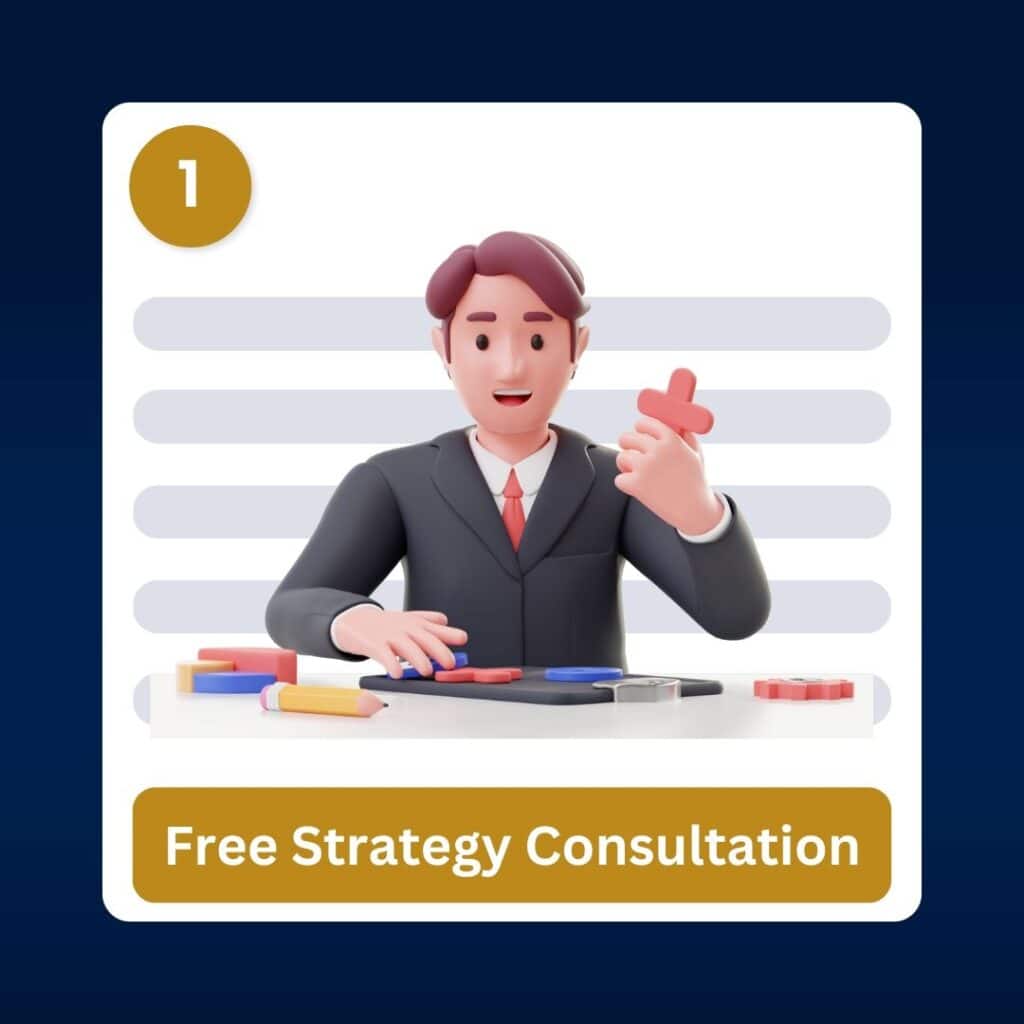
Tell us about your Business Growth Objectives
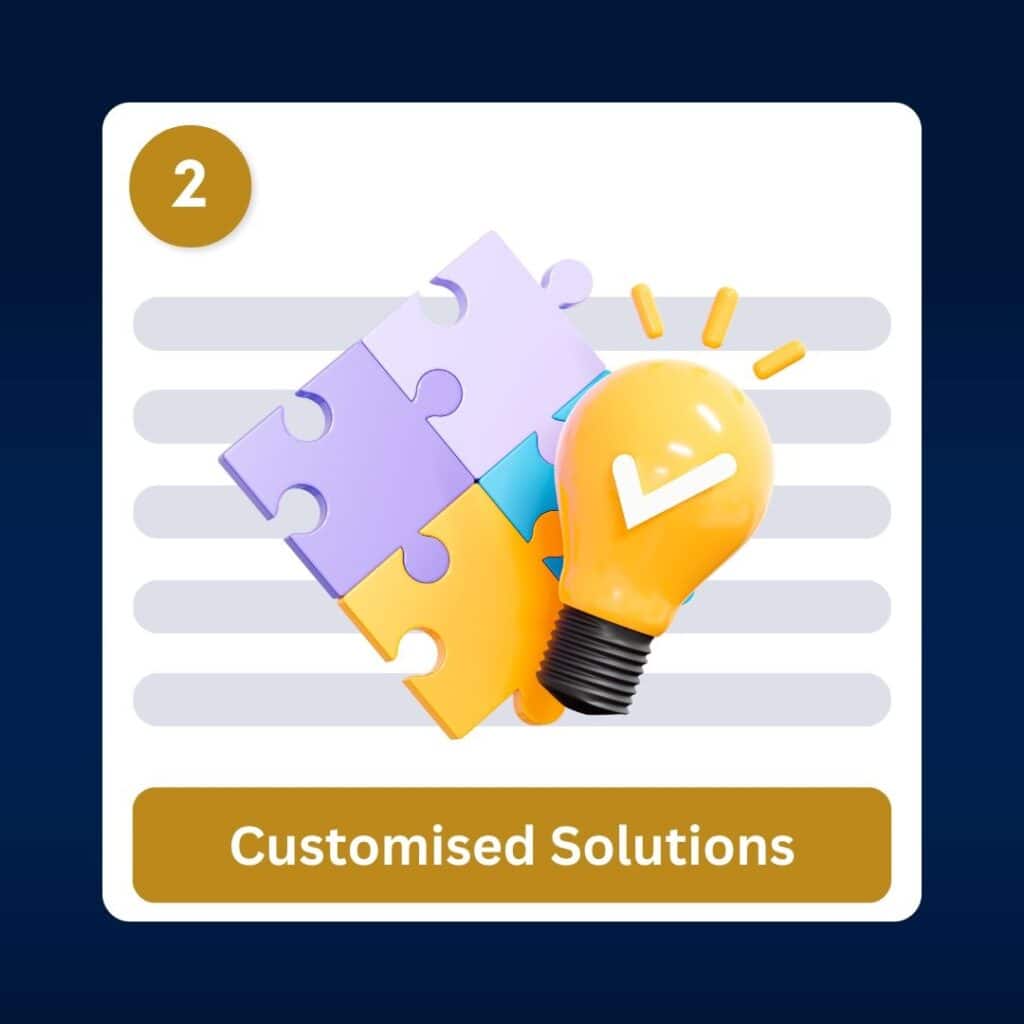
We will help you with a Blueprint & Plan
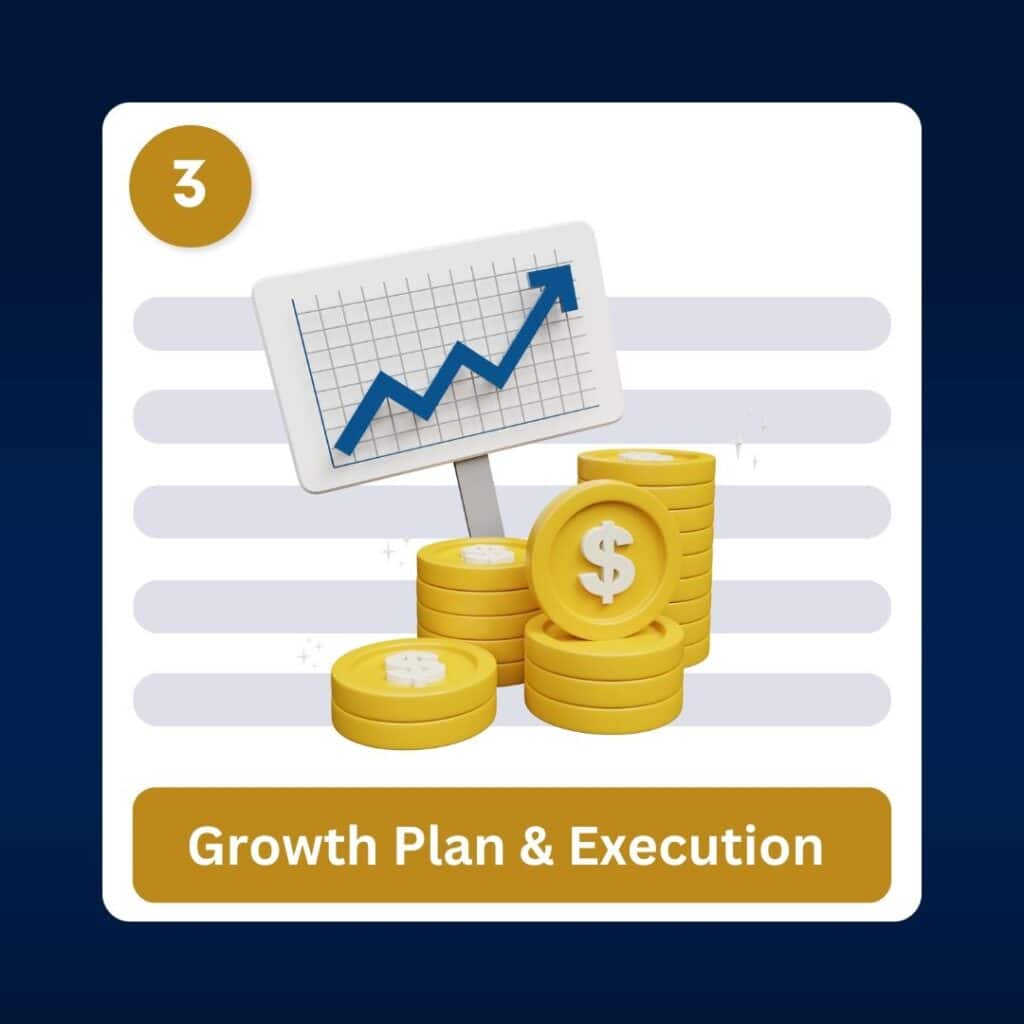
10X Growth Systems for your Business Success
Business Growth doesn’t
have to be difficult and Complex.

Strategies that scale
your Business 10X Faster

After connecting with Ajay, I realised how Important Marketing Automation is!! Earlier we used to hire freshers/interns for minuscule tasks but automation does it better and efficiently. “
Ashish Kumar – Director
Experts with Wide
Range of Experience
We understand business and we have a team that is proficient in executing top-quality results.

Highly professional, Prompt Response, Delivers on time, Easy to work with, Patient, and Truly Creative. I’m a happy Client
RamChandran, CEO

Let's Build Your Brand!

What makes Invincible Lion Different?
Invincible Lion is not a Marketing Agency, It’s your Growth Partner.
Our Core beliefs are Growth, Community, Brand Building, and Market Domination.
And we help you do the same for your Business keeping our core Business beliefs and philosophies in Mind.
We also believe that if you can grow your business revenue profitably, there will be almost no business problem you can’t solve.
And we will help you Build systems of Growth so that you generate more revenue and your business thrives.
Because Businesses are built on Trust, Transparency, Community feeling and Fundamentals of Human Life.
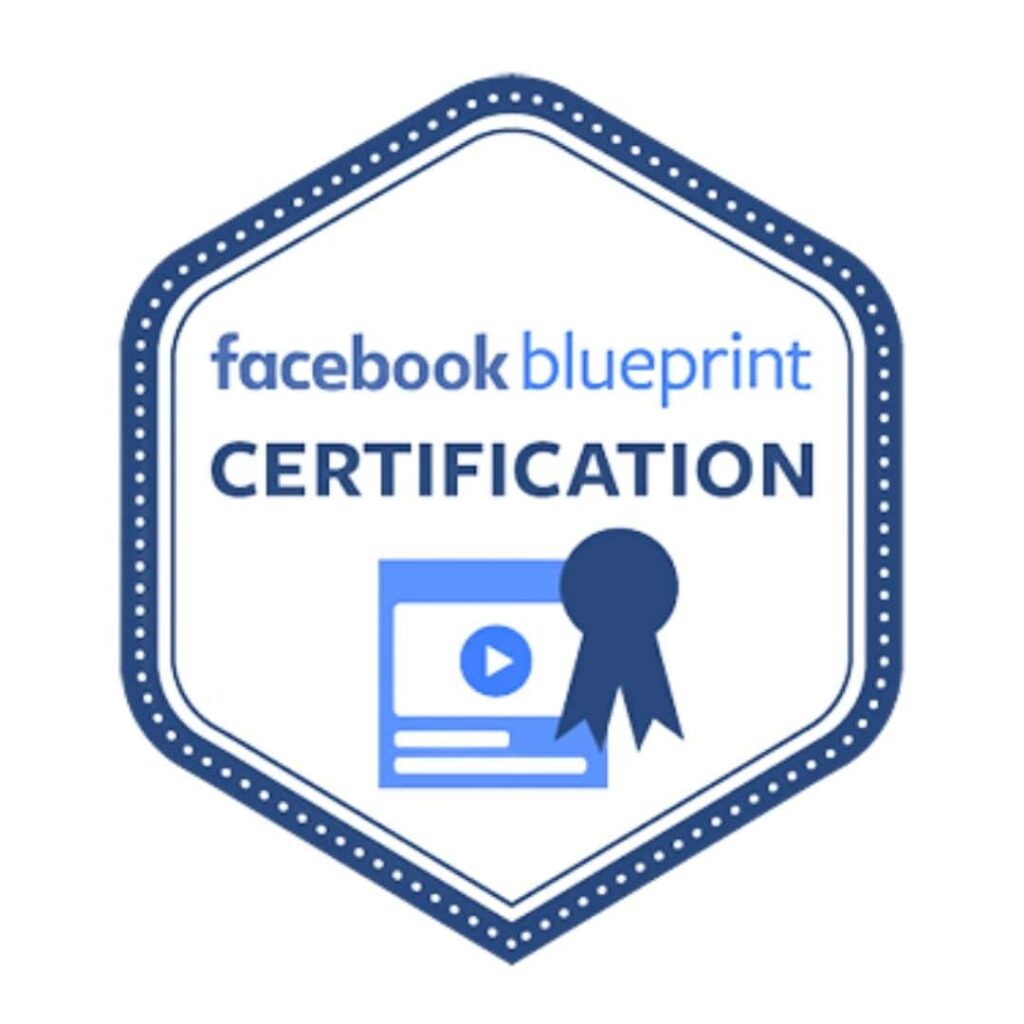

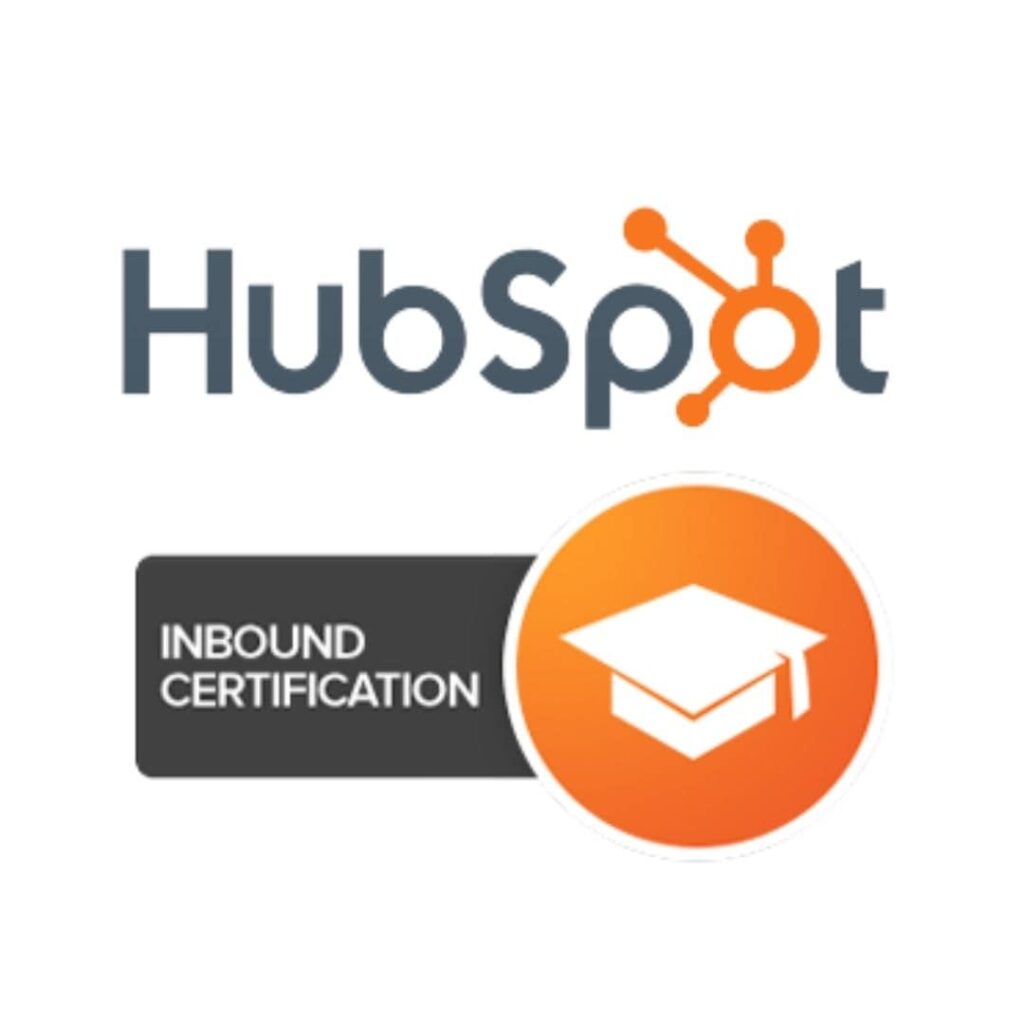

Ready to scale you Business to new Heights?
Let’s connect on a Free Discovery cum Strategy call for 10X Growth

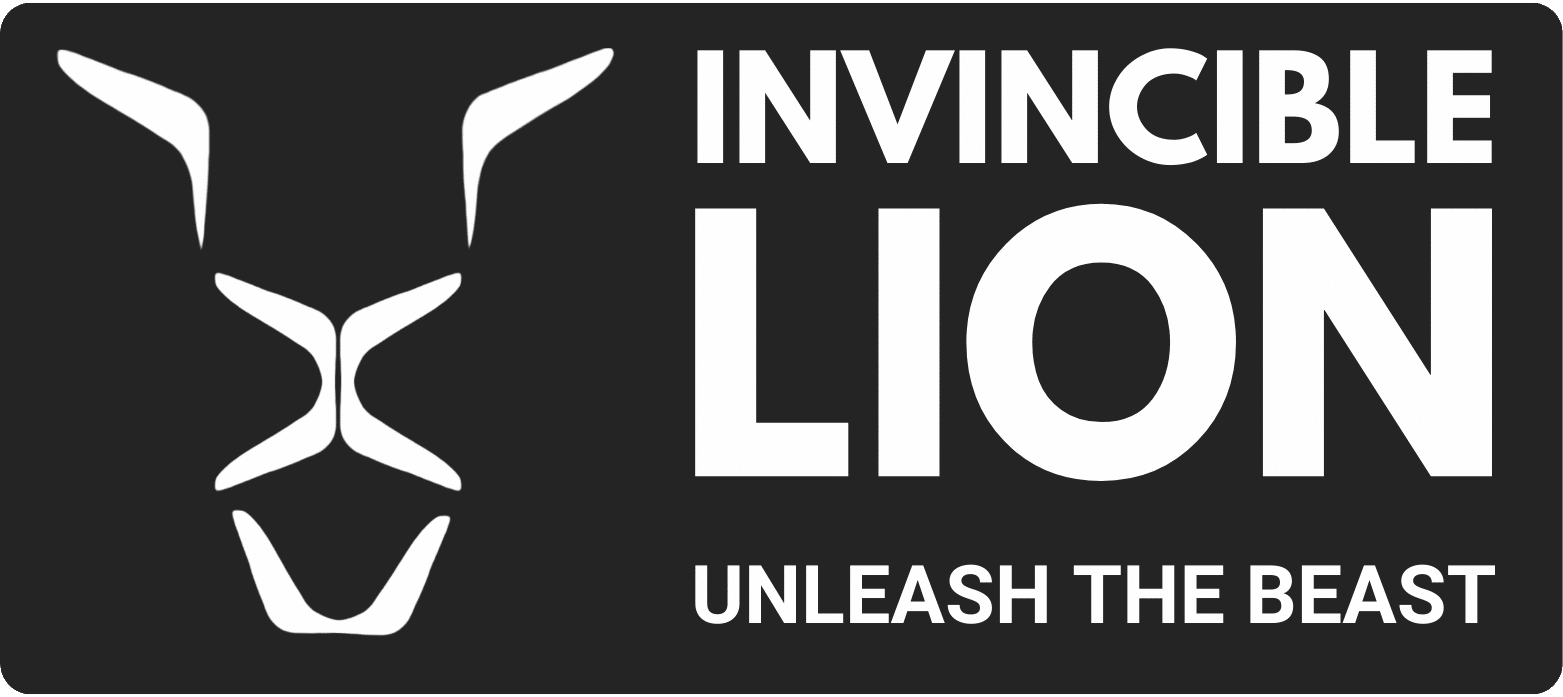
Introduction to Product Marketing Consultancy
What is Product Marketing Consultancy?
These experts specialise in market research, competitive analysis, product positioning, and customer engagement strategies. The key is that the products not only serve the customer’s request, but also shine in the market. As a consultant who typically focuses on Go-to-Market strategies, product visibility, and sales messaging, you may have felt disheartened by the latest development.
They may be brought in to help a company launch a new product, refine a current product line, or improve market performance. As the piece that connects the product development team with the market for their solution, they prevent mismatches between the two, resulting in an offering that is more closely aligned with the customer’s needs and desires. A company can reduce the risk of making poor decisions regarding its product by hiring a product marketing consultant, who helps it determine its value proposition and offers compelling narratives to capture consumer interest and influence purchase behaviour.
Why Companies Need Product Marketing Consultants
The importance of efficient product marketing has never been higher than in the current highly competitive business landscape. When it comes to product success, many organisations dive straight into product development and innovation, neglecting to realise that these are not the same, nor do they always translate to a successful product. Enter the product marketing consultant. They guide businesses in finding out and developing strategies based on how their product can establish itself in the market.
They possess the ability to transform a functional product into a market-ready offering that resonates with consumers through effective messaging and positioning. This ensures that the product’s functionality, advantages, and messaging align with market demand, ultimately contributing to superior strategies for customer acquisition and retention. These professionals devise comprehensive marketing strategies that enhance product visibility, refine pricing strategies, and develop high-impact promotional campaigns that resonate with the target market.
Hiring a product marketing consultant enables companies to leverage expertise and knowledge that may be lacking in-house. Consultants offer a fresh, objective perspective on a company’s product marketing strategies, providing new insights that result in innovative solutions. In addition, their engagement frees in-house teams to focus on other key areas of the business. It gives peace of mind that product marketing is professional, measurable, and results-oriented.
Product marketing consultants will supercharge growth, enable the company to achieve its business objectives, and, in turn, ensure the product succeeds well into the future.
What Does a Product Marketing Consultant Do?
A product marketing consultant helps your product reach the right audience and achieve sustained growth. This unique experience gives them an advantage over generalist consultants; their skills are well-suited to a diverse knowledge base, ranging from articles to customer acquisition. Now, let us examine the areas where a product marketing consultant can create value for a business.
Market Research & Competitive Analysis
One of the fundamental roles of a product marketing consultant is conducting extensive market research. This includes collecting information on the market landscape, customer needs, and emerging trends. These insights enable businesses to understand customer motivations, identify market challenges, and assess potential opportunities by analysing customer behaviour, competitors, and market conditions.
Competitive analysis is a crucial consideration in this process. Product marketing consultants analyse competitors’ products, pricing strategies, and marketing tactics. This helps the business position its product in a way that differentiates it from competitor products and highlights its unique value proposition (UVP). A competitive analysis also involves analysing other companies’ strengths and weaknesses, allowing consultants to identify gaps in the market that their client’s product could fill. This must be done as part of the analysis to ensure the product meets the demands of the target audience, paving the way for successful product placement.
By conducting thorough market research and analysing competitors, consultants can determine what the competition looks like, the risks and drawbacks of the product, and how its tendencies can be leveraged to the developer’s advantage. Through their work, they help businesses steer clear of expensive missteps while simultaneously building a strategic advantage by serving a product in a manner that aligns with the consumer’s needs.
Positioning & Messaging
Product positioning is performed after market research is conducted by product marketing consultants. This is a crucial task because it determines how you will position your product in the market in relation to your competition. The idea is to ensure that the product is perceived as the best and only solution to the customer’s problem. Then, consultants develop a customised communication strategy to ensure the product’s advantages, offerings, and value are conveyed to the target audience in a concise yet captivating manner.
A consultant’s role in messaging is much more than developing taglines or catchy words. This helps you create an overarching communication strategy that defines how the product will be marketed across various channels. This involves developing materials for websites, brochures, advertisements, and sales presentations to ensure consistency and clarity of the product’s message. It creates core messaging that speaks directly in a language they understand and taps into their desires, straight into the heart of the audience, which creates a long-lasting memory.
It can help ensure that a product not only meets but surpasses customer expectations. Consultants help ensure that the product’s message is aligned with the target audience’s pain points, allowing for steps towards establishing trust and a relationship with them.
Go-to-Market (GTM) Strategy
One key area in which product marketing consultants excel is helping you devise a go-to-market (GTM) strategy. This is an exhaustive roadmap that details how the product will be launched, sold, and monetised. The go-to-market (GTM) strategy identifies the key audiences to target, the channel mix, and tactics to create momentum from awareness to trial to adoption.
They collaborate closely with the business to identify target customer segments, design marketing campaigns, and develop partnerships that maximise product visibility. Establishing Key Performance Indicators: 6-12 months before a product launch, the product launch plan includes the definition and design of the product launch KPIs that will assess product success (product sales, leads, customer feedback, etc).
Product launches require strategic planning, and an experienced consultant is best suited to develop the GTM strategy, ensuring the product launch proceeds smoothly and effectively. They assist companies in aligning all necessary departments (marketing, sales, product development) to ensure that all stakeholders are aligned and working toward a common goal: product adoption and additional revenue.
Customer Acquisition & Retention
A product marketing consultant can also be essential for helping you move beyond the launch phase and drive powerful customer acquisition and retention. After the product goes live, the consultant works with businesses to design marketing efforts aimed at acquiring new customers. Using targeted digital marketing strategies, including SEO, content marketing, social media, and paid advertising, to create leads and turn interested customers into repeat buyers.
Great customer acquisition strategies are built on the right people, the right timing, and the right message. They also utilise personalised messaging and engagement that nurtures a lead and converts it into a long-term customer; product marketing consultants adapt the customer journey to ensure long-term profitability.
Consultants tend to reevaluate the importance of customer retention, alongside acquiring new customers. It is usually cheaper to retain existing customers than to develop new ones. Business consultants help companies turn this allegiance into replicable processes – such as email campaigns, loyalty programs, and post-purchase guides – that keep customers coming back. Consultants guide businesses here, too — by ensuring customer satisfaction and value through continued deployment and creation of value, a thriving customer base is formed , leading to long-term revenue.
Ultimately, the effectiveness of a product marketing consultant in acquiring and retaining customers significantly influences a product’s ability to maintain its position in its ecosystem and its prospects for sustainable growth.
Conclusion
In conclusion, a product marketing consultant is essential in ensuring that a product is strategically positioned, clearly/aptly promoted, and ultimately launched. These professionals bring invaluable skills in market research, competitive analysis, product positioning, messaging strategy, go-to-market strategy, and customer acquisition & retention to the table, ensuring the product not only meets market needs but also flourishes amidst competition. Through their knowledge and experience, businesses can tap into marketing goals that drive sales and position their product for long-term success.
Key Responsibilities of a Product Marketing Consultant
As a product marketing consultant, you work with businesses to guide them in the best way to launch and promote their products. They create content, analyse data, and collaborate with other teams to align marketing efforts with business objectives and customer needs. Now, let’s examine some of the key responsibilities of a product marketing consultant that contribute to the product’s success.
Collaborating with Product & Sales Teams
The primary task of a product marketing consultant is to work with the Product and Sales teams to align product needs with market needs. Oftentimes, product development teams are consumed with developing features based on technical requirements and innovation, and it’s the consultant’s responsibility to ensure that those features resonate with the intended user and are in demand by customers. This involves thoroughly getting acquainted with the product and understanding how it works, as well as collecting market feedback and iterating on the value proposition of your product.
Collaborating helps the sales team articulate how, in addition to other offerings, the product can benefit a potential customer. Product sales alignment ensures that all product development elements are aligned with sales efforts, resulting in a consistent messaging strategy.
Often, a consultant helps create product demos, sales pitches, and other tools that have a direct line to supporting the sales team in closing deals. Product marketing ensures that product positioning aligns with sales goals and that product features are described in a way that makes sense for the target market. The sales team must work closely with the product development team to ensure that the product is positioned correctly in the market and that the sales team is empowered to deliver the maximum number of conversions.
Creating Content for Marketing Collateral
Developing adequate marketing-related collateral is another critical function of a product marketing consultant.* Things like case studies, product sheets, whitepapers, presentations, etc. Consultants recognise that effective marketing materials are crucial for conveying a product’s value, establishing trust with the target audience, and equipping the sales team with the necessary tools to engage with prospects more effectively.
Product marketing consultants typically take the lead in developing product documentation, discussing key features, benefits, and case studies that demonstrate how the product has been successful in solving real-world problems. The sales team now has the resources available to develop and communicate compelling product narratives that aid in pitching to clients and prospects. Case studies, for example, demonstrate successful implementations of the product and present real-life affirmation of its value.
Training, pitching, FAQs, and other sales enablement content are also within the consultant’s purview, ensuring that the sales team has everything they need to sell the product with confidence. These are in-the-field product sheets that list the technical and functional information about what the product does, and also present that product in a way that makes it really interesting, engaging, and understandable. Your sales team needs access to collateral materials that help round out the sales cycle, so customers feel comfortable purchasing your product.
Data Analysis and Metrics
A significant function of a product marketing consultant is to utilise marketing analytics and data-driven marketing approaches to evaluate the performance of campaigns and adapt strategies accordingly. Institutions that prioritise data analysis will be rewarded in the long run, as they will gain profound insights that inform their marketing strategies and product positioning, enabling them to meet higher sales targets.
Tools Used by Consultants: Consultants utilise many of the same tools to track key metrics, including website traffic, conversion rates, customer acquisition costs, and engagement rates, across various marketing channels. By studying this data alone, consultants can assess the success of different campaigns and identify areas that need improvement. They measure the degree to which the brand’s marketing tactics are resonating with the target customer and whether or not its messaging aligns with customer expectations.
So, if a product launch campaign is not delivering results as expected, the consultant will dig into the data to find possible explanations for the shortfalls. You might evaluate metrics such as click-through rates, conversion rates, and bounce rates to determine pain points in the marketing funnel. Using this data, they could optimise the strategy, amend the messaging, or try new channels that more clearly reach the target demographic.
Data-driven marketing encompasses the ability to utilise marketing data to learn and optimise users’ experiences visiting your website or store in real-time, which is critical to a consultant’s ability to stay competitive in the current industry. A product marketing consultant leverages data to measure your performance, ensuring that every marketing effort delivers a higher and higher ROI according to company goals.
Conclusion
A product marketing consultant title means you work cross-functionally with teams to create marketing collateral content and apply data analytics to measure and optimise campaigns. Consultants align product sales with the help of product and sales teams to ensure that product sales do not dip due to a sales lock. It is best if the two teams work towards a collaborative environment. Consultants deliver compelling marketing collateral to empower the sales team to pitch product value effectively. In addition, consultants are utilising marketing analytics and data-driven marketing to enhance campaigns and refine strategies based on performance metrics.
All in all, these activities enable product marketing consultants to provide a holistic marketing approach that ensures the product’s success amid competition. By blending strategic insight with data-driven execution, they ensure not only that the product resonates with customers but also that it excels in a crowded market.
What is the Role of a Product Consultant vs. a Product Marketing Consultant?
Both product consultants and product marketing consultants work to ensure product success, making them key players in the fields of product management and product marketing within a project. Nonetheless, their expertise varies widely, and they come into play at different stages in the product life cycle. Let’s explore the various roles and identify their primary differences.
Product Consultant
Product consultants are more focused on the product cycle as a whole; they ensure that what is being developed solves a user’s need and provides value throughout the product lifecycle. They collaborate with internal stakeholders, including product managers, designers, and engineers, to define product requirements, prioritise features, and oversee the product throughout its development cycle.
User experience (UX) is one of the primary areas where a product consultant excels. They collaborate with UX designers and developers to guide the interactive aspects of the product. They run usability tests and take feedback from their test users for a better UX, focusing on ease of use, accessibility, and satisfaction.
They also manage the complete product lifecycle, from ideation to obsolescence. They monitor product performance and identify what is working and what is not, based on input analysis of features. They continuously iterate and refine features to keep the product competitive and relevant in the market. They participate in defining product roadmaps, collect feedback from stakeholders, and identify new opportunities for product enhancement or pivots.
Product Marketing Consultant
Whereas a product marketing consultant is concerned with getting the product out into the market where it can appeal to the right customers. They are focused on positioning the product in the market, ensuring that the product message resonates with customer needs and pain points. They are trying to achieve a market fit, in other words, ensuring that the product solves a specific problem or fills a gap that their prospective customers experience.
Developing and executing positioning and messaging strategies constitutes a significant part of a product marketing consultant’s job. Weaving a compelling story about the product that conveys its value proposition understandably and convincingly. These are tailored to specific market segments, differentiating the product from competitors. Consultants work on the go-to-market (GTM) strategy, which involves designing product launches, developing marketing campaigns, and selecting the most relevant channels for reaching potential customers.
A product marketing consultant reviews product feedback from customers and analyses market trends, in addition to their previous roles. They’re experts on customer acquisition, from identifying the right customer for the product to ensuring it reaches them, to tactics for keeping them engaged and coming back.
Key Differences
Although both positions work towards product success, there are significant differences between a product consultant and a product marketing consultant in terms of scope, responsibilities, skill sets, and results:
Focus:
The product consultant ensures that the product created is functional and meets the needs of its users throughout its lifecycle.
A product marketing consultant focuses on helping them go to market successfully. Are we positioning this correctly? What’s the right messaging? How do we need to adjust to ensure this resonates in the market?
Responsibilities:
This can range from releasing MVPs of various features to managing a product and collaborating with design and engineering teams to refine the product based on user feedback.
Marketing strategies, product positioning in the market, messaging, and driving customer acquisition through campaigns all fall under the purview of a product marketing consultant.
Skill Sets:
Product consultants often specialise in product management, UX design, and lifecycle management. They understand how users think and what they want, and bridge the gap between that and what they attempt to do in a product.
Product marketing consultants are experts in market research, competitive analysis, brand messaging, and go-to-market strategies. They study customer behaviour and create marketing pitches to persuade people.
Outcomes:
The product of a product consultant’s work is a well-developed product that meets user needs and performs well in the relevant market.
The ultimate goal of a product marketing consultant’s work is a successful product launch and ongoing market adoption through effective messaging, positioning, and customer engagement strategies.
Conclusion
Putting it all together, both a product consultant and a product marketing consultant are critical to a product’s success, but they tackle different stages of the product lifecycle. On the other hand, product marketing consultants work to ensure the product lands successfully in the market through strategic positioning, messaging, and a well-defined go-to-market strategy. Understanding the unique responsibilities of each ensures that companies can combine their expertise to provide a high-quality product in the right hands.
The Three Pillars of Product Marketing
Product marketing is key to a successful product market introduction, customer adoption, and growth for any business. Multiple strategic steps in this process will ensure the success and compatibility of your product. There are three pillars of product marketing — Product strategy, Positioning, and Go-to-market (GTM) strategy, which are the most critical elements of product marketing. Let’s take a closer look at each pillar and discuss the critical role that consultants play in implementing these pillars effectively.
Product Strategy
A strong product strategy is at the core of any successful product marketing endeavour. In the long term, consultants help chart the product’s vision in relation to the market and its implications for consumer behaviour. It focuses on a thorough understanding of the target market, customer needs, and competitive dynamics.
Product strategy involves defining clear goals for what the product should achieve, identifying the target users, and outlining the approach to achieve them — all within the context of the company’s overall business objectives. Consultants conduct market research to identify customer pain points and preferences, as well as emerging trends, so that a marketable product can be created.
A similar pivotal aspect of this pillar is the product roadmap. It serves as a schedule for product development and upgrades, specifying the features to be developed and the timelines for their release. Consultants collaborate with product teams to create a roadmap of development stages, ensuring that every feature meets customer satisfaction while achieving company goals. The roadmap keeps businesses focused on delivering customer value and ensures that the product continues to evolve in line with the market over time.
An excellent product strategy also requires making ENABLED market exit decisions, product iteration, or pivots due to shifts in customer behaviour. This might include suggesting changes to the product’s features or user experience to help it remain relevant to its audience and differentiate itself from competitors.
Positioning
The second pillar of product marketing is positioning. This is especially critical because any great product is likely to struggle for success if it lacks precise, compelling positioning.
Positioning a product means defining how it will address the target market’s problems or needs. The consultants take into account every possible market trend, competitive behaviour, and consumer insight to create a unique selling point (USP). This statement clearly indicates what makes the product unique and valuable. The product needs a strong USP, as that is the key that differentiates it from competitors and stands out, enabling it to build a customer base in a competitive world.
Consultants also assist businesses in crafting messaging that conveys the product’s benefits clearly and persuasively. They pay attention to the words used toward a target audience, leveraging emotional or value-based language to engage potential customers. To achieve this, consultants fine-tune the product positioning so that the product communicates its value effectively and is more likely to be adopted.
Along with creating the USP, they help businesses monitor their positioning in all marketing materials and across marketing campaigns. Obviously, this can be achieved through advertisements, website content, and sales presentations; however, a coherent and consistent message will ultimately build both recognition and trust in the product.
Go-to-Market Strategy
The last pillar of product marketing is the Go-to-Market (GTM) strategy. This means the tactical implementation of product launches and getting it in front of the ideal persona at the right time. Consultants are invaluable for designing and executing a successful go-to-market (GTM) plan.
Example elements of a go-to-market strategy include defining the target market, pricing, and distribution channels. Consultants conduct market research to identify which segments are most likely to purchase the product and determine the most effective targeting approach. From this information, they create a plan that includes product launch tactics, promotional activities, and sales enablement strategies.
Messaging consistency across all platforms is one of the key elements of your product launch strategy. They create content, campaigns, and promotional offers that companies can use to build excitement about the product and generate interest before its launch. Such promotional strategies might involve campaigns via email, social media, press releases, and other channels. Lastly, they’re often split between getting the necessary collateral into the hands of the sales team (i.e., case studies, brochures, slicks, pitch decks, etc.) and the sales team physically going through the motions.
The consultant also orchestrates a post-launch plan to measure the success of the launch. They monitor key performance indicators, or KPIs, such as sales performance, customer feedback, and market penetration, allowing businesses to adjust their tactics as needed. Long-term support requires persistent adapting and following.
Conclusion
Nailing the three pillars of product marketing—Product Strategy, Positioning, and Go-to-Market Strategy—is the key component of every successful product journey. Consultants help ensure that each of these pillars is followed correctly by providing expertise in market research, customer insights, and competitive analysis. By working with companies to create a clear product strategy, define product market positioning, and develop a go-to-market plan, consultants help ensure that a product is set up for success in a competitive market.
The 4 Ps of Marketing and How Product Marketing Consultants Apply Them
The 4 Ps of Marketing—Product, Price, Place, and Promotion—are foundational principles that guide marketing strategies. For product marketing consultants, applying these principles effectively ensures that a product meets market needs, is priced competitively, is available to the right audience, and gains traction through promotional efforts. Let’s explore how consultants apply each of these elements to create successful product marketing strategies.
Product
The first “P” is for product, referring to the goods or services that a company offers to the market. A product marketing consultant’s role, however, is to help define the product, ensuring its features, benefits, and design reflect the reality of customer needs and the market.
Through market research, consultants help businesses identify customers’ pain points, understand their preferences, and pinpoint areas where the market is underserved. They interact closely with the product development teams to ensure the product features respond to these needs. The consultant studies competitor products and recommends feature adjustments or innovations to give the product a competitive edge over other offerings.
The consultant’s responsibilities here also include identifying the product’s unique selling proposition (USP) — the traits that make the product different from comparable offerings. Consultants ensure that the product aligns with market needs and customer preferences, either through improved quality or price, or by utilising a flexible approach or technology.
Price
The second element of the 4 Ps is Pricing. Consultants in product marketing work on pricing strategy so that the product is competitive, while also finding a path to profitability. Your price must reflect the perceived value of the product, fit within the allocated budget of the target audience, and consider the pricing strategies adopted by your competitors.
Price Elasticity Analysis: Consultants often analyse price elasticity to estimate the impact of a price change on demand. For the recommended pricing structure (e.g., premium pricing, penetration pricing, or economy pricing), consultants recommend one that maximises revenue while aligning with customer expectations, based on customer research and competitive analysis. They also assist businesses in determining which promotional pricing strategies — including discounts, bundles, or limited-time offers — to use to increase sales.
The correct price positions the product to remain competitive in the market and appeal to the target audience, driving both adoption and revenue.
Place
“Place” refers to the distribution channels through which a product is made available to customers. Distribution strategy: As a product marketing consultant, they develop strategies for distributing the product through the most effective and efficient channels to reach the target customer.
Consultants evaluate the best way to bring the product to market, such as through physical retail, e-commerce, or a direct sales force. They can even suggest partner channels, such as third-party distributors or resellers, to increase reach. The product should be accessible to the target demographic through various channels, including in-store purchases, online sales, and/or subscription services.
Logistics and inventory management are also assessed to ensure timely delivery and customer satisfaction. They assist organizations in selecting the ideal distribution mix based on location, demographic profile, and purchasing habits.
Promotion
Promotion is when potential customers become aware of the product and are encouraged to make a purchase. They create promotional strategies to build awareness, interest, and conversion as suggested by product marketing consultant services.
Consultants suggest a range of services, including advertising, public relations, content marketing, email campaigns, social media marketing, and influencer partnerships. They coordinate the messaging across all platforms, aligning it with the product’s positioning.
Consultants also assist businesses in designing product launch campaigns that generate buzz ahead of the official launch. Early Access, pre-order, or exclusive preview programs help create momentum and buzz around the product, driving early adoption and sales.
Example Application:
One great example of how a product marketing consultant applies the 4 Ps to a product is the launch of a new tech gadget. Imagine the company is launching a new smartwatch.
Product: The consultant initiates market research to identify the features desired by the target audience, such as heart rate monitoring, GPS tracking, or interoperability with other devices. This research leads the consultant to recommend a sleek design, ease of use, and advanced fitness tracking features for the company’s offerings.
Price: The consultant recommends penetration pricing, which involves setting an introductory price low enough to attract customers and quickly gain market share. They also suggest upselling and cross-selling strategies, with a premium product priced higher that offers additional capabilities.
Place: The consultant examines the distribution channels and suggests that the product be sold through both e-commerce channels (the company’s website and Amazon) and also work with select retail partners. They also suggest collaborations with fitness centres and gyms to advertise the smartwatch directly to fitness enthusiasts.
Promotion: The consultant develops a promotional campaign as part of an action plan, utilising social media ads, influencer partnerships, and email marketing to generate buzz around the smartwatch. They also advise starting a pre-order campaign with special discounts for early birds.
By effectively utilising the 4 Ps, the product marketing consultant elevates the smartwatch’s position in a competitive market, captures a large audience, and generates solid sales shortly after its launch.
Conclusion
The 4 Ps of Marketing — Product, Price, Place, and Promotion — are the building blocks of every product’s marketing strategy. With their knowledge, product marketing experts enable businesses to refine their product definition, pricing strategy, distribution channels, and promotional campaigns. By taking a holistic approach, consultants help ensure that a product is positioned in a way that meets both market demand and the target audience, and contributes to business growth.
How Much Do Product Marketing Consultants Charge?
The costs of hiring a product marketing consultant will vary based on several factors, including the consultant’s experience, the project’s complexity, and the geographical region of operations. Product marketing consultants usually charge by an hourly rate or by project fees. Differentiating between these pricing structures takes a business a step closer to selecting the best option that’s right for them and their budget.
Hourly vs. Project-Based Fees
Hourly Rates
For short-term projects or when the scope of work is less defined, hourly rates are standard, especially for consultants. Consultants may work on an hourly basis for projects such as conducting market research, developing marketing strategies, or providing advice on product positioning. Consulting fees vary significantly depending on the consultant’s experience, the nature of the work, and the prevailing market rates.
A consultant with extensive experience and a proven track record of success in the industry may charge a higher rate than a consultant who is relatively new to the industry and has less experience. Companies that require continuous support or smaller projects typically charge hourly rates.
Project-Based Fees
For less nebulous work where the deliverables are more clearly defined, product marketing consultants may also charge a project-based fee. These are predefined fees that are agreed upon in advance, based on the work involved and the estimated time required to complete the necessary work. Project-based fees are typically used for activities such as product launches, developing a go-to-market strategy, or customer acquisition campaigns.
For project-based fees, the consulting provider will typically submit a detailed proposal that outlines tasks and their corresponding milestones, along with a fixed price for each. This flat-rate model can be more predictable for businesses, as they know exactly what they will pay for the specific services that are provided.
Typical Range by Region
In some countries, the pricing for product marketing consultants is high. In contrast, in others, it is low, and the difference between, for example, India, the US, and Europe is relatively significant. Here are the typical ranges in each of these regions:
United States
The cost for a product marketing consultant in the US is generally higher compared to the demands of experienced professionals.
Rate per hour: In the US, consultants may bill from $ 100 to $500+ per hour, depending on their experience, location, and the complexity of the work. Consultants with specialised expertise in high demand can command even higher fees.
Project-Based Fees: For projects with fixed costs, fees range from $10,000 to $100,000 or more, depending on the project scope and the consultant.
Europe
Pricing in Europe is approximately 10% lower than in the US, but as mentioned, it varies from country to country.
Hourly Rates: In countries such as the UK, Germany, or France, they typically charge between €80 and €300 per hour.
Project-Based Fees: For a business product marketing strategy development, you might be looking at budgets ranging from €8k up to €60k for a fully-fledged project, with due consideration given to complexity and market research requirements.
India
With its lower-cost consulting rates, India presents a strong business case. However, rates have risen in tandem with the demand for expertise in emerging markets.
Hourly Rates of Product Marketing Consultants in India: ₹2,000 to ₹10,000 per hour. However, niche consultants will likely charge much more, particularly for international companies.
Project-Based Fees: The average fixed project fees in India can vary from ₹50,000 to ₹10,00,000, depending on the project’s scale and the client’s needs.
Factors Affecting Charges
The fees of product marketing consultants depend on various factors. Key Factors/ Tipping Points:
Complexity of the Project
The bigger and more high-stakes the project, the larger the fees. A comprehensive go-to-market strategy, which involves extensive market research, competitor analysis, and messaging strategies, will be more expensive than a simple product positioning review, for instance.
Consultant Expertise
Senior consultants with extensive product marketing experience and a proven track record of successful product launches and market positioning tend to command higher rates. For instance, if the consultant has experience working with large enterprises or popular brands, they could warrant higher charges based on their credibility and expertise.
Company Size and Scope
Larger companies typically engage product marketing consultants with bigger budgets for strategic planning or to lead high-profile projects. Consultants may charge higher fees for these businesses. Smaller businesses or startups with tighter budgets may need to negotiate lower rates or opt for short-term contracts or hourly rates.
Project Duration
The longer the project, the more you can expect a consultant to charge, particularly if the work entails a long-term commitment to bringing a product from concept to execution. Fees for short-term, discrete projects are relatively low.
Market and Demand
Consultants in in-demand markets or industries (e.g., technology, SaaS) can often charge more per hour because of the specialised skills required. In contrast, demand in other markets may not be as high; thus, consultants may provide more attractive prices to generate business.
Conclusion
Product marketing consultants can charge a wide range of prices, depending on their pricing model, the complexity and scope of the project, and the region or country in which the consultant operates. Hourly rates are generally more flexible and ideal for short-term work, while project-based fees provide a more transparent pricing structure for extensive, long-term projects. Knowing the typical fee structures in various areas and the factors that influence charges can enable businesses to make more informed decisions when hiring a product marketing consultant, ensuring they find the right match for their budget and project requirements.
What Makes a Great Product Marketing Consultant?
If you want experience and expertise, a product marketing consultant is the way to go. In this line of work, a consultant needs to possess many skills and qualities that enable them not only to devise effective marketing strategies but also to implement them in ways that create measurable results. What makes a product marketing consultant stand out:
Strategic Thinking & Creativity
And one of the cardinal attributes of a premier product marketing consultant is strategic thinking. Great consultants have the informed wherewithal not only to pay lip service to immediate objectives but also, ultimately, to help businesses build plans that will lead to more, not less, sustainable success in the long term. They don’t just look at the product itself; they employ big-picture thinking—considering what customers need, market trends, competitors’ offerings, and business goals.
It involves focusing on the intersection between product features, customer pain points, cloud, and the product’s value proposition, targeting a specific customer base. These consultants build more than general marketing schemes for businesses; they create customised, data-driven strategies that help brands stand out in a crowded field.
A product marketing consultant’s work also relies heavily on creativity. The top consultants leverage new and original ideas to position products in ways that get noticed. Crafting compelling messaging and introducing go-to-market campaigns that stand out, ensuring the product is positioned differently from competitors. Creativity enables them to identify out-of-the-box ideas that can help them tackle obstacles throughout the product launch and subsequent marketing efforts.
Strong Communication Skills
A good level of communication is also an essential trait of a great product marketing consultant. The consultant will need to communicate clearly with clients, stakeholders, and cross-functional teams about complex marketing strategies and propositions, ensuring they understand the key messages and processes to facilitate action.
Mastery over communication skills is essential for selling ideas and gaining buy-in from executives. That also means being able to explain why specific strategies or tactics are needed and how they fit into the company’s goals. These consultants need to be able to condense specific analytics into clear, digestible insights that inform strategic decisions. Furthermore, they must create an enticing product message that appeals to potential customers through various marketing channels.
Active listening is also part of the engagement, including hearing client requirements, resolving interests, and realigning plans accordingly. Here, having strong listening skills helps the consultant forge solid relationships with clients, identify pain points in the market, and determine potential complications that may arise as the product progresses through its lifecycle.
Adaptability & Market Knowledge
A good product marketing consultant can adapt quickly and, therefore, must be constantly on top of industry trends and developments. So, the most important thing here is adaptability, as both the marketing and consumer behaviour fields are undergoing rapid changes. What worked for a product in the past might not work now, and great consultants can pivot strategy and tactics to fit.
Understanding the market is also very important. Top consultants staying up with the latest trends, technologies, and shifts in customer expectations. They have a deep understanding of not only the competitive landscape but also themselves, and constantly iterate on their approach with real-time data and feedback. Whether that’s adapting to the latest trends in SEO algorithms, new social media platforms, or disruptive innovations within the industry, the best consultants keep pace with their strategies.
Note that they should also be able to apply this knowledge to devise effective strategies. Consultants can guide their clients through successful product and marketing launches by closely reading the market and tailoring their campaigns to any new trends.
Conclusion
In summary, a fantastic product marketing consultant brings together strategic thinking, creativity, and adaptability, along with excellent communication skills and a deep understanding of the market. Well, these consultants aren’t simply tactical doers; they’re big-picture thinkers who can deliver real, sustainable success for their clients. Through awareness of trends, creativity in thinking, and clarity in communication, they can help ensure that a product is effectively positioned and received by the market, as well as successful in meeting its business goals.
Product Marketing Consultant Near Me
Selecting a Local Product Marketing Consultant When Businesses Seek to Optimise Product Marketing. Local consultants are trained on the regional or national market. They can advise accordingly, making them a good choice for your business if you are aiming to maximise your marketing strategies in a specific area.
Why Local Consultants are Important
There are several great benefits of hiring a local product marketing consultant that can positively influence the outcome of your marketing campaigns:
Local Market Insights: Local consultants are well-versed in regional or national market dynamics. They know local trends, consumer behaviours, what works, what doesn’t, and local pain points. This realisation is crucial to ensuring the product appeals to the audience. Local marketing strategies that resonate with the community are more effective when executed by a consultant who is familiar with the local culture, language, and buying habits.
Familiarity with the Target Area: Local consultants are often more accessible and better equipped to respond to the area’s needs. Moreover, targeting local consumers in both urban centres and rural areas, a regional consultant will have a clearer insight into how to reach and build affinity with these groups. They also have strong & established networks within the local business ecosystem that can be useful for partnerships, collaborations, and access to local media channels.
Cost-Effectiveness: Engaging a local consultant can significantly minimise travel and logistical expenses, particularly for companies that require someone with firsthand knowledge of the local market. Moreover, local consultants possess the experience and knowledge of regional business regulations and compliance, ensuring that marketing campaigns are in accordance with legal requirements and industry standards.
How to Find a Local Consultant
It is now easier than ever to find the perfect product marketing consultant near you. Present several practical strategies to search for a local consultant effectively:
Use Search Engines: Enter your need for “near me product marketing consultant” in a search engine. This will enable you to see consultants based in your local area or region. You may even want to include keywords in the search that you know the customer will use, for example: “India,” “Bangalore,” “USA,” or any other location you want to target, in order to refine the output.
Utilise Social Networks: With the help of professional or social networks, it’s easy to find local consultants; try LinkedIn or Upwork. Filters can help you find an expert in your geographic area, and you can read ratings from previous clients. LinkedIn is also great for verifying a consultant’s credentials, work history, and endorsements from people in your network.
Request Referrals: If you have contacts with other local business owners or professionals, reach out and ask for referrals. When searching for a reputable consultant, word-of-mouth recommendations are often the most reliable source. Solicit recommendations from your network on consultants who have effectively worked with businesses in similar industries or with portfolios that share similar needs.
Check Local Directories and Business Listings. Some cities or regions have local directories that list consultants and service providers. These directories may direct you to consultants who have experience working in the local market.
Check Industry-Specific Organisations: There are various industry-specific organisations, such as product marketing associations or business chambers, that may maintain a list of recommended consultants or agencies. These groups typically vet the consultants they list, so you can feel confident that they have the relevant experience and credibility to deliver results.
Conclusion
With access to in-depth market knowledge, tailored strategies, and a more personalised marketing approach, hiring a local product marketing consultant can give your business a competitive edge. One can easily identify the appropriate consultant who aligns with their objectives and understands the nuances of their local market by utilising online resources, networking, and professional directories. A local consultant can help you position your product effectively, whether you’re a small startup or part of a large IT business, with the right marketing campaigns and messaging tailored to your target audience.
Product Marketing Consultant in India
Product Marketing in India
There is a growing need for product marketing consultants in India, which is one of the fastest-growing businesses in the tech, SaaS, and eCommerce industries. India, with its rapidly growing digital economy and a thriving startup ecosystem, is an ideal destination for companies across all sectors to aspire to succeed. Yet, it is also precisely why product marketing consultancy is crucial for navigating the highly competitive market and achieving and sustaining product-market fit.
Tech and SaaS companies are a hot commodity for product marketing consultants, and they are trying to stand out in a congested space. They utilise their local expertise to develop go-to-market strategies that present products in ways that appeal to both local and international buyers. Product marketing consultants for eCommerce companies specialise in enhancing user experiences, creating compelling value propositions, and leveraging data-driven strategies to drive sales and retention.
Local Opportunities and Challenges
Product marketing consultants face unique opportunities and challenges, as India’s diversity, size, and dynamic consumer base yield distinct marketing patterns:
Opportunities:
Growing Middle Class: The Indian consumer base is poised for significant growth with the advent of a booming middle class and increased reliance on the internet.
Diverse Startup Landscape: With one of the largest and most dynamic startup ecosystems globally, a variety of startups are establishing themselves and may require expert consultants to define their product offerings and develop effective marketing strategies.
Emerging Markets: While the urban market is incredibly competitive, consultants can assist companies in targeting emerging semi-urban and rural areas by designing their approach for diversified audience segments.
Challenges:
Cultural Diversity: With its immense socio-economic, artistic, and ethnic diversity among its population, India often requires customised marketing strategies for different regions. They should be able to analyse these regional preferences and devise well-structured localised marketing campaigns.
Digital Literacy Gap: Although India has experienced phenomenal growth in the adoption of digital technology, some markets still struggle with low digital literacy. One that consultants must bridge, adjusting their techniques for different degrees of comfort with the transition.
Price Sensitivity: The Indian consumer is price-sensitive.
With these challenges aside, India is a universe full of opportunities for product marketing consultants to assist businesses and organisations in achieving success in an ultra-competitive and evolving marketplace.
Conclusion
Want to supercharge your product marketing strategy? If you need expert help with enhancing your product positioning, go-to-market strategies, or customer acquisition efforts, reach out to us today! Book a discovery call to explore how we can help you succeed in your market. Let’s collaborate to take your product marketing to new heights!
Frequently Asked Questions
1. What is a Product Marketing Consultant?
A product marketing consultant is a professional who works with businesses to develop and execute effective product marketing strategies. The primary function is to recognise potential markets, determine customer needs, and create the major messaging and strategy that can be implemented to improve visibility and sales. Such consultants support businesses in realising growth by ensuring that the right target audience is sold the right products.
Adding this built-in function of product marketing consultants will help you define the unique selling proposition (USP) of a product and position it in a way that makes it stand out from your competitors. They work closely with product development, sales, and marketing teams to ensure that the product is positioned correctly and meets the needs of potential customers. This process may include market research, competitive analysis, and customer profiling to identify pain points and customer behaviours.
Consultants create go-to-market strategies and product positioning, and also support customer acquisition strategies and retention efforts to keep products top of mind.
2. What Does a Product Marketing Consultant Do?
A product marketing consultant is a multifaceted job function that specialises in making a product successful in the market. Their primary duties are to:
Positioning & Messaging: The consultant assists in defining your product’s messaging and positioning. It is imperative that the product connects with the target audience and distinguishes itself from the competition.
Go-to-Market (GTM) Strategy: Consultants create and implement go-to-market strategies, ensuring that new products and services are launched successfully and that the target audience is effectively reached to meet sales targets.
Customer Focus: They develop strategies that attract and retain customers. They generate compelling campaigns that ensure customer retention over the years.
Simply put, the product marketing consultant’s task is to connect the dots between product engineering and market achievement. Hence, the product not only satisfies market needs but also exceeds client expectations.
3. How Much Do Product Marketing Consultants Charge?
The cost of hiring a product marketing consultant can range widely, depending on their level of experience, the amount of time the project requires, and the consultant’s geographical location. Two ways people charge for consulting are by the hour or on a flat (project-based) rate.
So, if a product marketing consultant comes to you and charges by the hour (hourly_rates), you can expect a fee ranging from $100 to $500 per hour, based on their level of experience and expertise. Eminent consultants with a rich list of clientele charge higher rates, depending on the niche industry, such as SaaS or e-commerce.
Project-based fees: For more defined, long-term projects, consultants tend to charge a fixed fee. Such projects could be worth from just a few thousand dollars to several hundred thousand, depending on the size, length, and complexity of the effort.
Regional pricing differences also come into play. They charge more at the top of the range in countries where consultants are in high demand, such as the US and the UK. In certain regions, such as India, the lower cost of living may lead product marketing consultants to charge less while still providing world-class expertise.
Pricing varies depending on factors such as the size of the business, the consultant’s experience, and the specific deliverables.
4. What Are the Key Responsibilities of a Product Marketing Consultant?
A product marketing consultant’s essential responsibilities are to ensure a product’s success in the market. Some of their primary duties are:
In-depth Research: Researching the market, customer needs, competitor analysis, and emerging trends. This is a defining product strategy research project.
Messaging & Positioning: Developing impactful messaging that correlates with the product’s USP and aligns with the target audience. One of the things that consultants do is help businesses build a strong positioning statement that makes the product stand out.
Go-to-Market (GTM) Strategy: Consultants help develop effective go-to-market strategies that outline how to deliver a new product or service to the market. This includes building launch plans, identifying the right target, and running campaigns that ideally promote the product.
Sales & Marketing Alignment: Product marketing works with the sales team to align marketing efforts, thereby optimising goals, helping to optimise lead generation and conversion rates.
Customer Acquisition & Retention: Creating a plan to reach new customers and retain current ones. They utilise client patterns, data, and market trends to enhance customer experiences.
These and a variety of other tasks are how product marketing consultants ensure that products deliver their expected market fit and ROI for businesses.
5. What is the Difference Between a Product Manager and a Product Marketing Consultant?
A product manager and a product marketing consultant have different goals, but they work well (together). Both roles work on a product-level lifecycle, but focus on other aspects.
Product Manager: A product manager focused on the creation and lifecycle of the actual product. They manage product features, collaborate with engineering teams, prioritize product features, and ensure that the product meets users’ needs and market demands. Product managers oversee the strategy, roadmap, and development of the product.
So, while a product marketing manager is market-facing, working closely with the product itself, a product marketing consultant is market-facing, focusing on the market for the product. They develop and implement go-to-market plans, define product positions, create messaging strategies, and evaluate competitive landscapes. They are focused on ensuring that the product is a success in the market – it reaches the right people and meets business objectives.
Unlike the product manager, who works internally with development teams, the product marketing consultant works externally to align your product with customer needs and market demands.
6. What Are the Three Pillars of Product Marketing?
The three key pillars of product marketing are product strategy, positioning, and go-to-market (GTM) strategy. Here’s how each pillar contributes to the success of a product:
- Product Strategy: This involves defining the long-term vision for the product based on market research and consumer behavior. Consultants help businesses develop a product roadmap and ensure that the product aligns with market trends and consumer needs.
- Positioning: Positioning is the process of defining how the product will be perceived in the market. Consultants help businesses differentiate their product from competitors by crafting a compelling unique selling proposition (USP) that resonates with the target audience.
- Go-to-Market Strategy: This pillar focuses on executing the plan to launch the product successfully. Consultants create a comprehensive go-to-market plan that includes market entry strategies, targeting, messaging, and promotional tactics to generate awareness and drive sales.
Each of these pillars is crucial to achieving a strong product-market fit and ensuring the product’s success in the marketplace.
7. What is the Role of a Product Marketing Consultant in Product Launches?
By providing specialised expertise and guidance, a product marketing consultant can help online businesses navigate the complexities of product launches and lay the groundwork for long-term success. This involves several stages:
Market Research: Before launch, your consultants must research the target audience, competitor products, and market conditions.
Positioning and Messaging: Consultants develop clear and compelling messages that articulate the unique value of the product to the target market. They ensure that the product stands out and aligns with the target audience.
Market Entry Strategy Development: Automotive consultants help clients develop a comprehensive market entry strategy that includes product launch plans, customer segmentation, marketing campaigns, sales strategies, and performance metrics.
Sales Enablement: They assist sales teams in developing sales collateral (for example, presentations, case studies, and product sheets) that facilitate the sales process and boost conversion rates.
The consultant helps ensure that the product launch goes well, reaches the target audience, and maximises the chances of success by managing these steps.
8. What Are the 4 Ps of Marketing, and How Do Consultants Apply Them?
The 4 Ps of marketing stand for Product, Price, Place, and Promotion. A product marketing consultant uses these principles as a framework to help them create effective marketing campaigns:
Product: The consultants help define the product’s features, goals, and value proposition to ensure it is built to serve its target market.
Price: Assist businesses in developing competitive pricing strategies that optimise revenue and align with customer expectations and market standards.
Place: Consultants help determine where the product will be sold, ensuring it is available to the right customers at the right time.
Promotion: Also responsible for creating and executing promotional strategies that enhance product visibility, using digital marketing, content creation, and paid media strategies.
Product marketing consultants leverage these principles to help companies spur the adoption of their product and drive sales growth.
9. How Can Product Marketing Consultants Help with Customer Acquisition and Retention?
A product marketing consultant works primarily on customer acquisition and retention. They employ different business techniques to recruit and maintain customers:
Customer acquisition: Those consultants develop focused marketing campaigns that connect with the target audience and utilise data to refine ads, content, and other outreach efforts. They rely on customer personas, segmentation, and psychographic analysis to develop tailored marketing methods.
Customer Retention Metrics: You also analyse retention metrics, evaluating customer feedback, behaviour, and satisfaction levels. They guarantee that businesses retain customers and maximise lifetime value by creating loyalty programs, nurturing customer relationships, and refining the customer journey.
These efforts are the foundation for businesses to continue generating consistent streams of income and thriving in competitive industries.
10. What Are the Key Skills Required to Become a Product Marketing Consultant?
To become a successful product marketing consultant, certain skills are essential:
- Strategic Thinking: Ability to develop comprehensive marketing strategies that align with business goals.
- Market Research Expertise: Understanding customer needs, market trends, and competitive analysis.
- Strong Communication Skills: Effective communication with stakeholders, including product, sales, and marketing teams.
- Go-to-Market Planning: Expertise in planning and executing product launches and promotional campaigns.
- Data Analysis: Proficiency in using data to measure marketing success and adjust strategies accordingly.
These skills, combined with relevant experience, allow consultants to drive successful product marketing initiatives.

